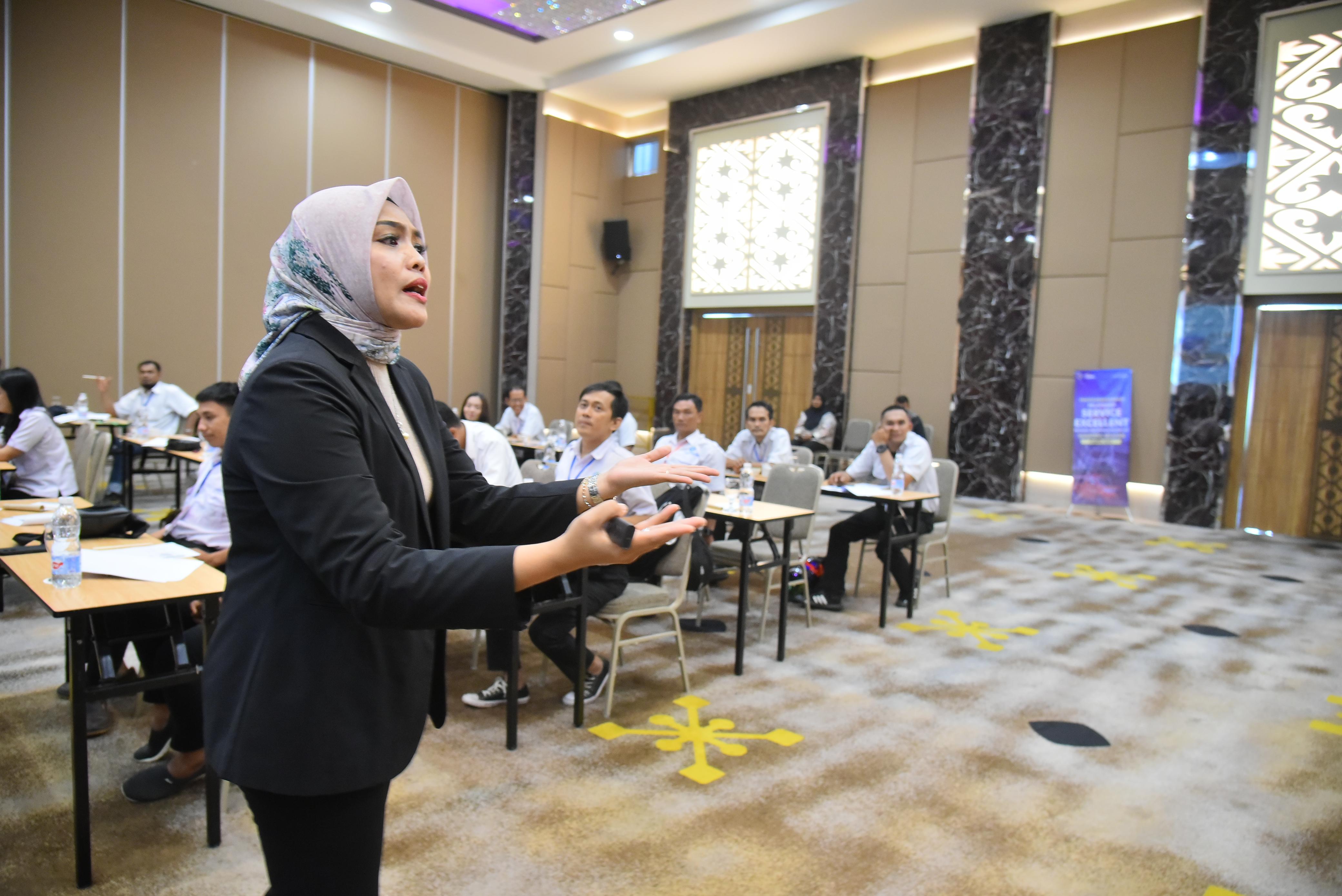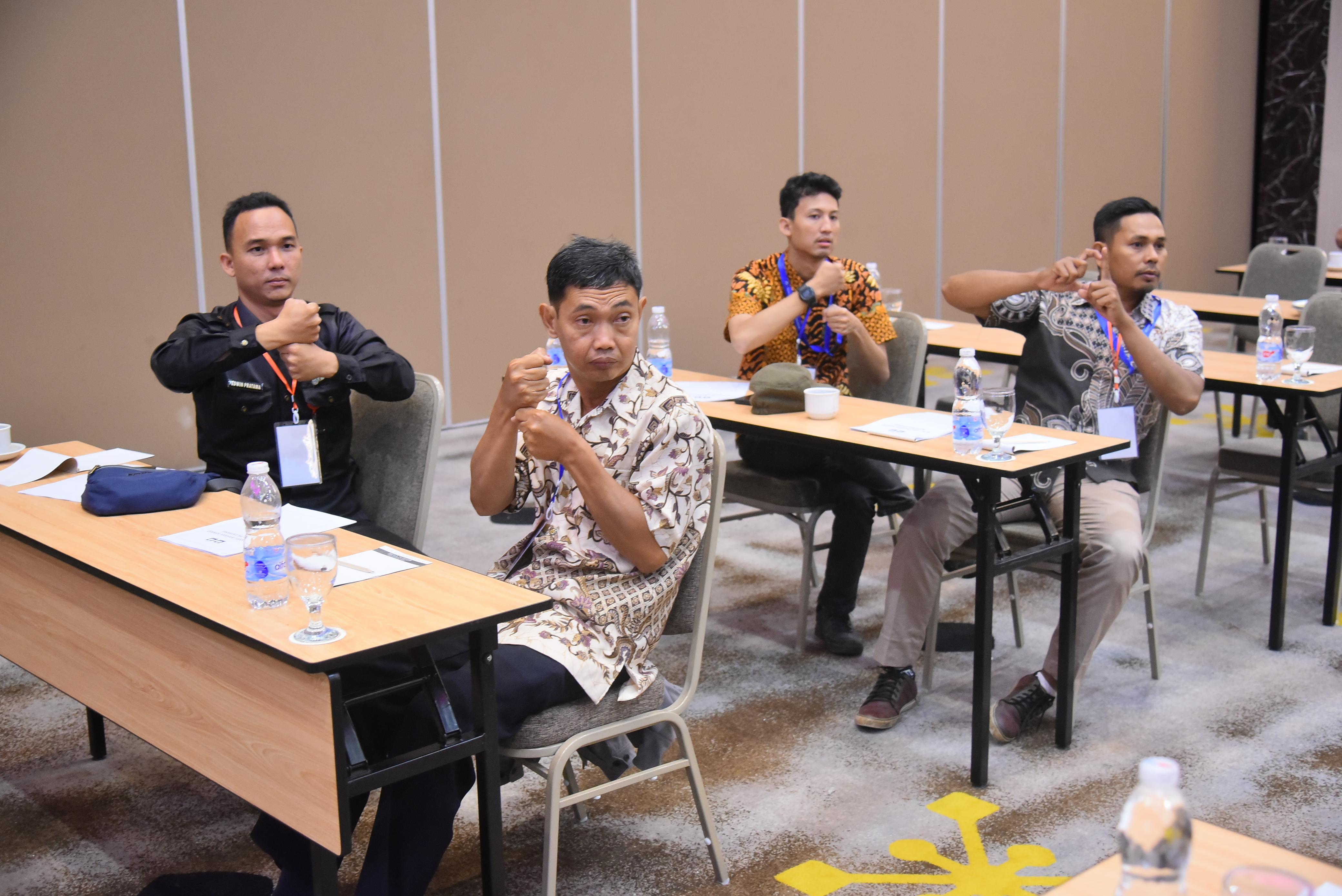Service Excellent Training: Enhancing the Service Quality of Feeder LRT South Sumatra Staff

Palembang – To improve the skills and professionalism of the South Sumatra LRT feeder service staff, the South Sumatra Light Rail Transit (LRT) Management Office organized a Service Excellent Training from October 29-31, 2024. The event, held at the Golden Sriwijaya Hotel in Palembang, aimed to provide an in-depth understanding of excellent service as an integral part of the daily responsibilities of public transportation service staff.
The three-day training was officially opened by the Head of the South Sumatra LRT Management Office, Mr. Rode Paulus G.P. In his opening speech, he emphasized the importance of excellent service competency as the main foundation for building public trust in the LRT feeder service.
"Service is the face of the transportation system we are building. If the staff can provide friendly, professional, and responsive service, the public will feel more confident and comfortable using this mode of transportation. Therefore, this training is expected to develop skilled and trustworthy service personnel," said Rode Paulus.
He was joined by Mr. Aditya Yunianto, Head of the Facilities and Infrastructure Utilization Section, who also motivated the participants. Aditya explained that the success of service provision is determined not only by a good system but also by the quality of human resources (HR) that directly serve the public.
Day 1: Public Speaking to Build Confidence
The training began with a session on public speaking, presented by Ms. Wanny Ramdiastuti, a public communication practitioner. In this session, participants learned how to speak confidently, capture the audience's attention, and handle difficult situations when dealing with passengers.
Wanny emphasized that good speaking skills could enhance passengers’ trust in service staff. She also shared practical techniques, such as using proper voice intonation, maintaining positive body language, and handling complaints wisely.
"As the front line, staff must be able to convey information clearly and professionally. This is crucial for creating a positive passenger experience," said Wanny.
Participants also took part in practical simulations, such as practicing making announcements and answering passengers' questions. The hands-on session received enthusiastic responses from participants, who felt more confident after the training.
Day 2: Understanding Sign Language
On the second day, the focus shifted to understanding and using sign language. Mr. Iwan Oktarianto and Mr. Faisal Fani delivered the session. This session aimed to equip staff with the skills to communicate with passengers with disabilities, particularly those who are deaf or have difficulty hearing.
Iwan and Faisal explained the importance of inclusivity in public service and taught sign language basics that are practical and relevant to everyday public transport. Participants learned to recognize the sign language alphabet and common expressions. They also learned how to give directions using sign language.
"By understanding sign language, staff can provide equal service to all passengers, without exception. This is a concrete step towards inclusive public transport," said Iwan.
At the end of the session, participants practiced using sign language in passenger service simulations. This gave them real-life experience of putting theory into practice.

Day 3: Service Excellence as the Core of Service Delivery
Ms. Dely Febrij, S.Sos., C.T., a professional service consultant, gave the final presentation on the central theme of service excellence. Dely explained that excellent service is not only about providing quick solutions but also about creating memorable experiences for passengers.
According to Dely, service excellence is built on three pillars: a friendly attitude, professional competence, and the ability to adapt to the needs of passengers. She also offered strategies for dealing with service challenges, such as empathizing with customers and resolving conflicts with satisfying solutions.
"Staff are the frontline of public service. By having a friendly attitude and strong competencies, the public’s trust in the LRT feeder will increase, supporting the sustainability of this transportation service," said Dely.
The session concluded with an interactive discussion and Q&A in which participants shared their field experiences and challenges. In the final simulation, participants were asked to practice various service scenarios, such as dealing with a passenger who has lost an item or assisting passengers with disabilities.
Training Outcomes
The three-day training received positive feedback from participants, who reported feeling more confident and skilled in providing better service. One participant shared that the training offered valuable insights that would be useful in their daily work.
"This training really helped us understand how to serve passengers better. The material was relevant and easy to grasp," said one of the participants.
The Service Excellent Training is expected to be a step toward improving the quality of public transportation services in South Sumatra. By improving the skills of the LRT feeder staff, it is hoped that the public will feel more confident and comfortable using this public transportation service. The South Sumatra LRT Management Office is committed to continuously improving its human resource competencies through future training programs.



Komentar
LOGIN FOR COMMENT Sign in with Google